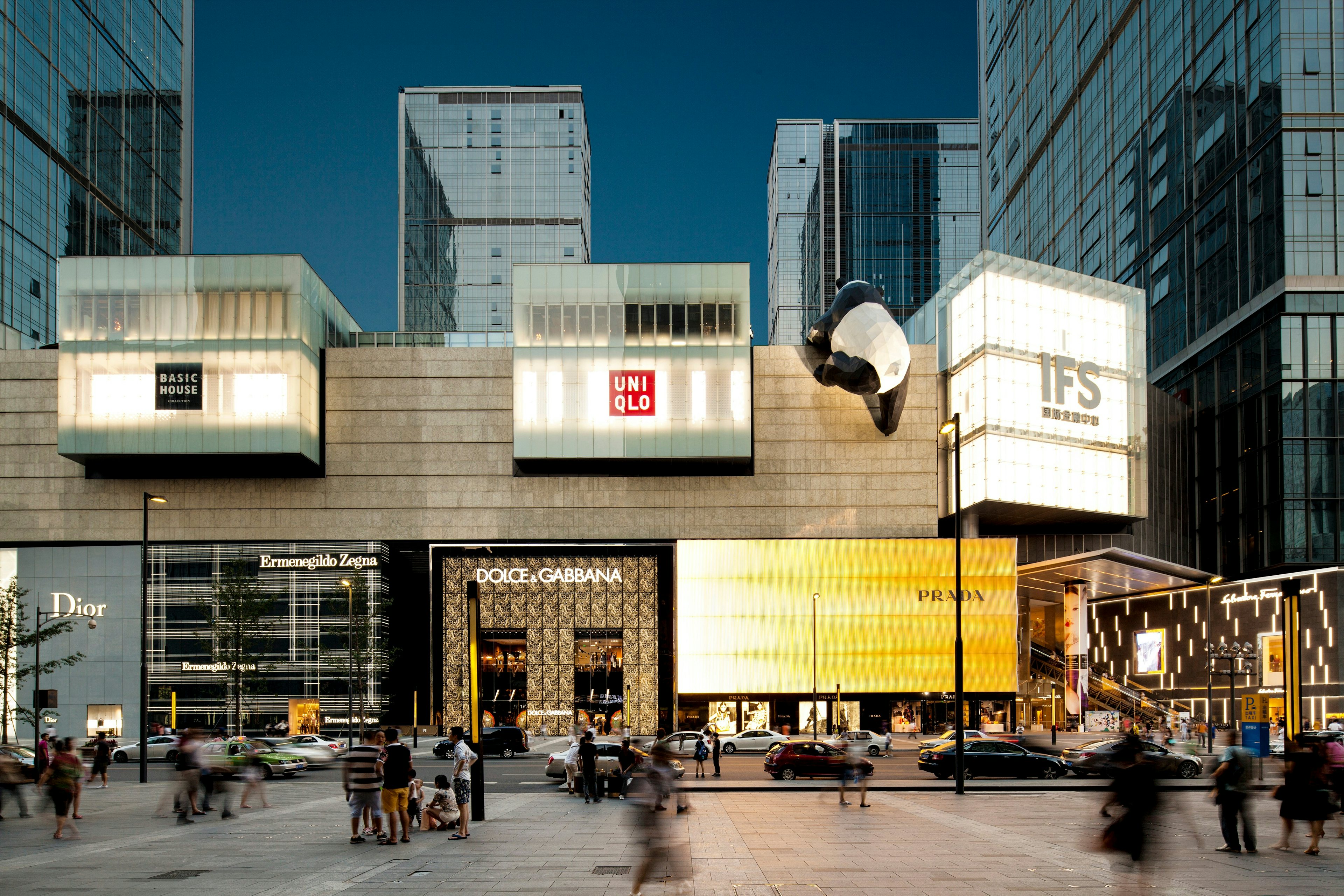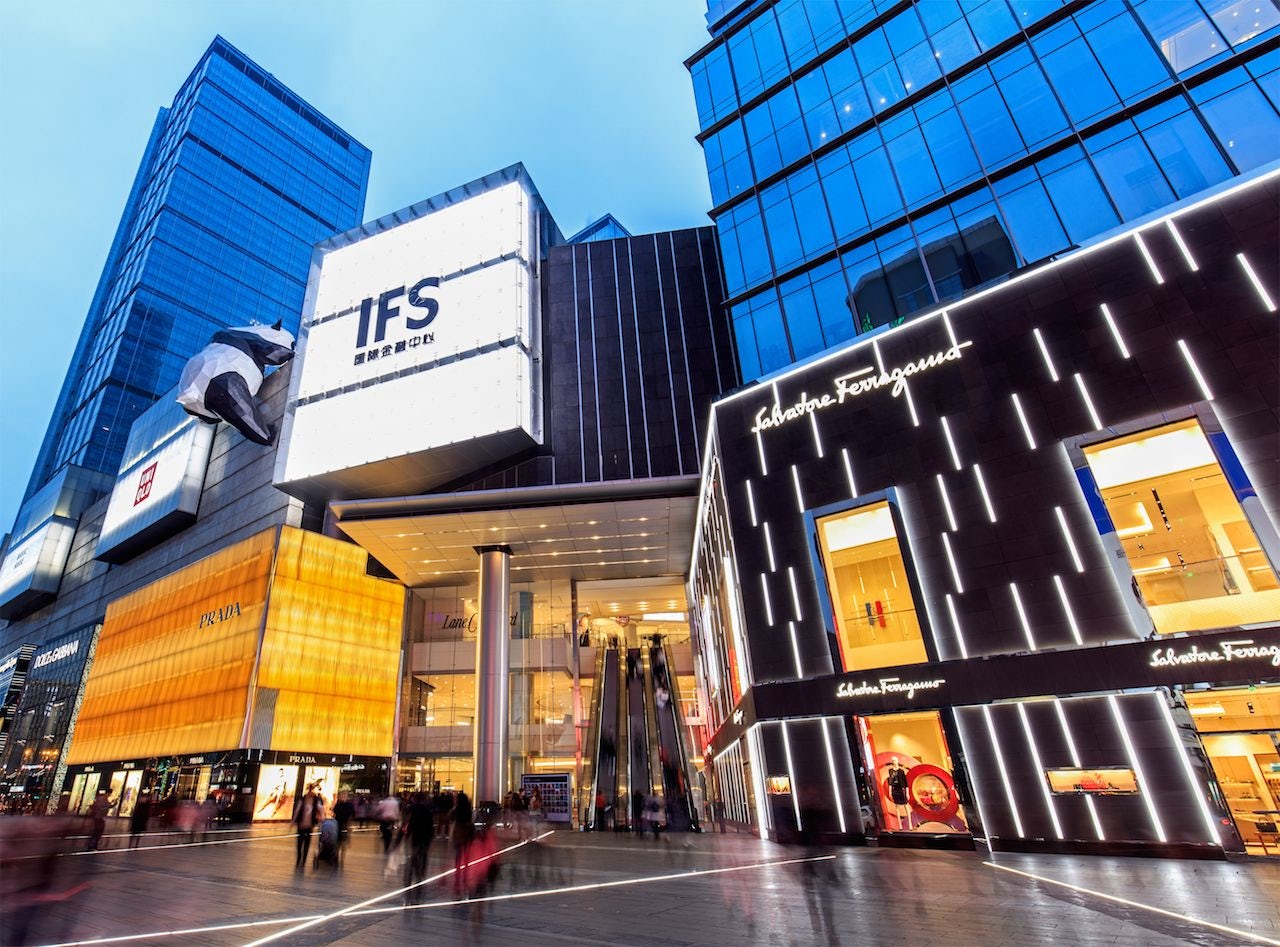There must be something spectacular about Chengdu IFS if French billionaire and LVMH CEO Bernard Arnault decided to visit the luxury shopping mall earlier this month to learn why his brands are performing so well there.
Chengdu IFS opened in 2014 and is now the top luxury shopping destination in the city, as well as one of the most influential premium malls in China’s Midwest region. The 210,000-sqm, nine-floor shopping mall, which was developed by the Hong Kong property company The Wharf Holdings, is today the home to over 600 luxury, fashion, and lifestyle shops and services. 15 percent of those stores are "ultra-luxury" brands, 34 percent are premium fashion brands, 18 percent are affordable luxury brands, and the rest are dining, entertainment, and lifestyle services.
A number of high-profile luxury brands from Chanel and Moynat to Moncler and Tom Ford opened their first-ever flagship stores in the region at Chengdu IFS, while brands like Dior and Arnault's Louis Vuitton have their largest regional stores there. All of this indicates just how strategic Chengdu IFS is to luxury brands like LVMH wanting to shore up their retail networks in Chengdu, one of China's biggest tier-two cities that holds an enormous potential of luxury consumption.
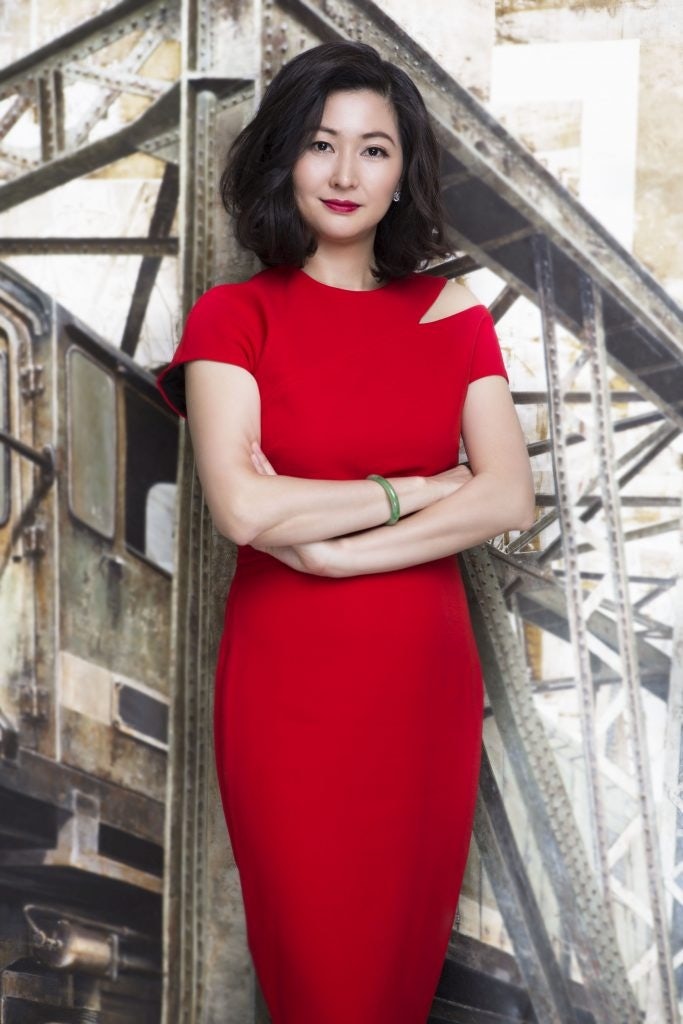
“Since the opening, the mall has achieved double-digit growth in both sales and rentals each year,” said Christina Hau, Wharf China Estates Limited Assistant Director and General Manager (Retail Leasing & Operations), about the mall's success. “Many luxury brands are satisfied with their performance at Chengdu IFS, with a lot of them seeing their sales here entering the brand’s top three rankings in China.” This robust growth has continued even as China’s economic growth has experienced a downturn — something that usually dampens consumer confidence and affects retail performance. “Our business is still performing strongly based on the sales figures in the first quarter of this year, and the growth of many international top-tier luxury brands has not seen signs of a slowdown due to China’s macroeconomic environment,” said Hau.
The cozy and laid-back culture in Chengdu, where the locals also insist on living life to the fullest, makes it a unique place for luxury consumption. “People in Chengdu and the neighboring regions know how to enjoy life through shopping and eating… They are also less sensitive to prices compared to consumers in other Chinese cities," Hau explained. "To them, shopping has to bring happiness and fulfillment. They are rarely fussy about prices.” That's why as the third-largest fashion capital in China (behind Beijing and Shanghai), Chengdu has yet to experience any economic impact on the city’s luxury purchasing power.
Location, location, location#
Chengdu IFS is located in one of the city's most vibrant economic areas, the commercial Chunxi Road region, right alongside other major shopping malls and department stores like Taikoo Li and Parkson. It's easy for consumers to travel there from all corners of Chengdu via public transportation or cabs for their shopping needs.
Its convenient location also makes Chengdu IFS a must-see for tourists. “The mall is a landmark of the city,” said Hau. “According to our client-profiling data, a great number of our customers are actually coming from outside of Chengdu and are here to travel or on business trips. For instance, they come from Guizhou, Tibet, Zhejiang, Beijing, and Shanghai. Many of them are even our gold card holders.”
But Chengdu IFS is even bigger than you think. It's not a standalone shopping mall, but instead is part of a large-scale commercial complex that includes three “Grade A” office buildings, one luxury hotel, and one high-end service apartment building. To an extent, Chengdu IFS’s commercial concept is similar to New York City’s new landmark Hudson Yards development, which offers everything from shopping and working to dining and entertainment in the hopes that they'll keep customers inside their economic zone for as long as possible.
Newest styles from a wide range of brands#
The width of brand selection at Chengdu IFS meets the diverse needs of the city's luxury shoppers. Consumers who prefer a conventional luxury shopping experience can visit the floors 1-3, where boutique stores from well-known luxury brands are showcasing their newest collections. “Our mall has a deep diversity of luxury goods. Some items that you won’t be able to find in Hong Kong can be found here,” said Winnie Wong, Chengdu IFS Brand & Marketing Deputy General Manager.
But Chengdu IFS also didn't miss out on edgy or niche luxury fashion brands that have yet to gain a foothold in China but are already trending with the country’s forward-looking fashionistas. The first Lane Crawford store in China’s Midwest region is located in this part of Chengdu IFS (floors 3-4), which offers a slew of hot, young designer labels such as The Row, Thom Browne, Gabriela Hearst, and Sacai.
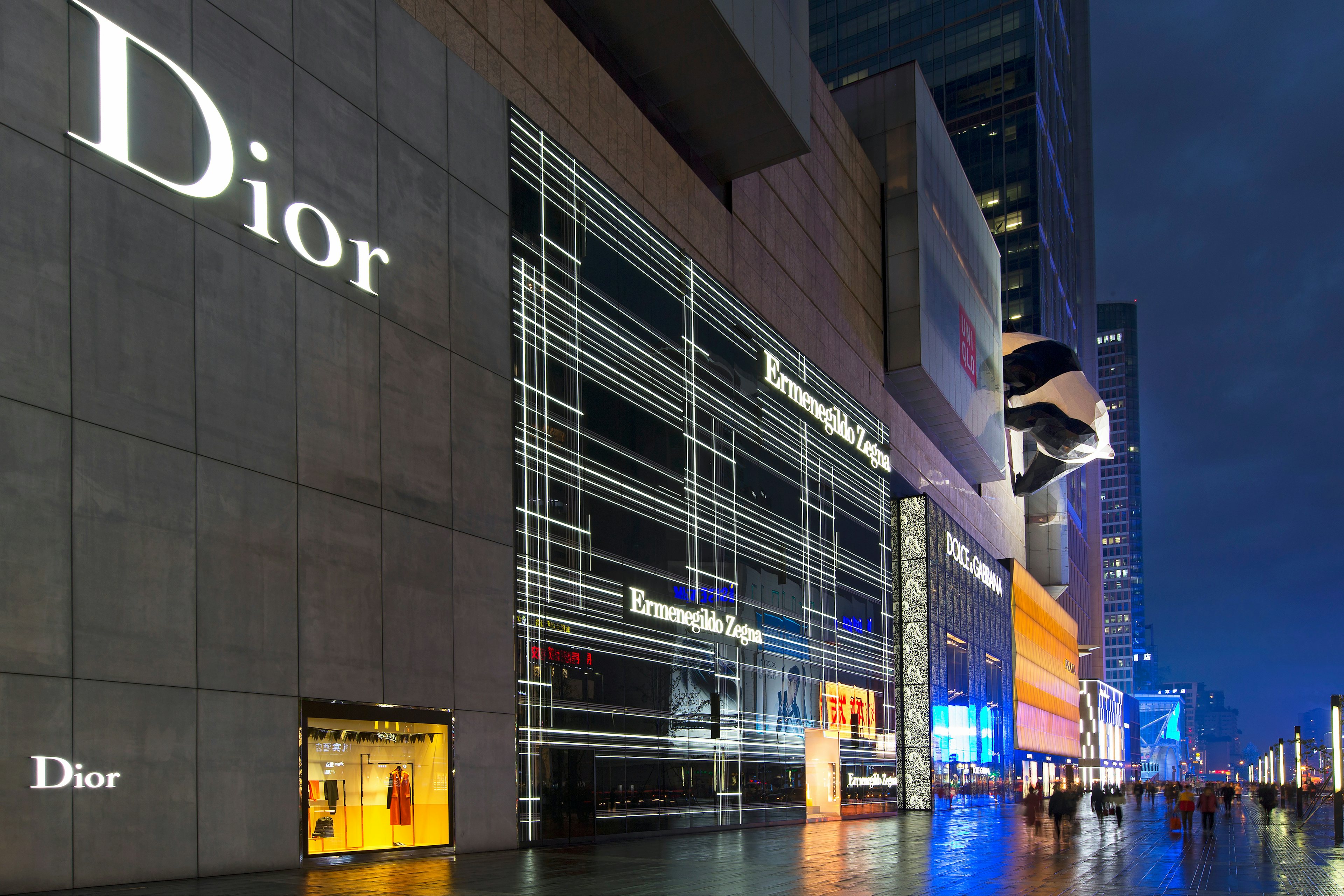
Courting high-quality customers#
The quality of visitors to a mall is crucial in deciding its business performance. In this respect, Chinese supermodel Lv Yan, who is also the founder of contemporary womenswear brand Comme Moi, endorsed Chengdu IFS’s efforts to attract wealthy customers for their brands.
“Chengdu IFS has gathered a group of high-quality customers through hosting a lot of business, culture and art events, which is highly helpful,” said Lv. Her store debuted at the mall's Lane Crawford store in early 2015. After seeing steady sales growth, Comme Moi launched a pop-up store from August 14-27, 2017, where it scored around 119,200 (RMB 800,000) in sales. Today, the brand is operating as an independent boutique store at Chengdu IFS.
Aside from gaining new customers, the mall recognizes the importance of retaining their existing ones. Chengdu IFS has designed its own VIP program that hosts over 260,000 members thus far. It also extends their shopping experience to digital platforms like WeChat, where members can participate in online events, redeem points, and purchase products on its mini-program store. A highlight of its offerings to high-end VIP clients is a concierge delivery service that ships luxury goods home for them — an initiative that's been highly praised by the mall's luxury brands.
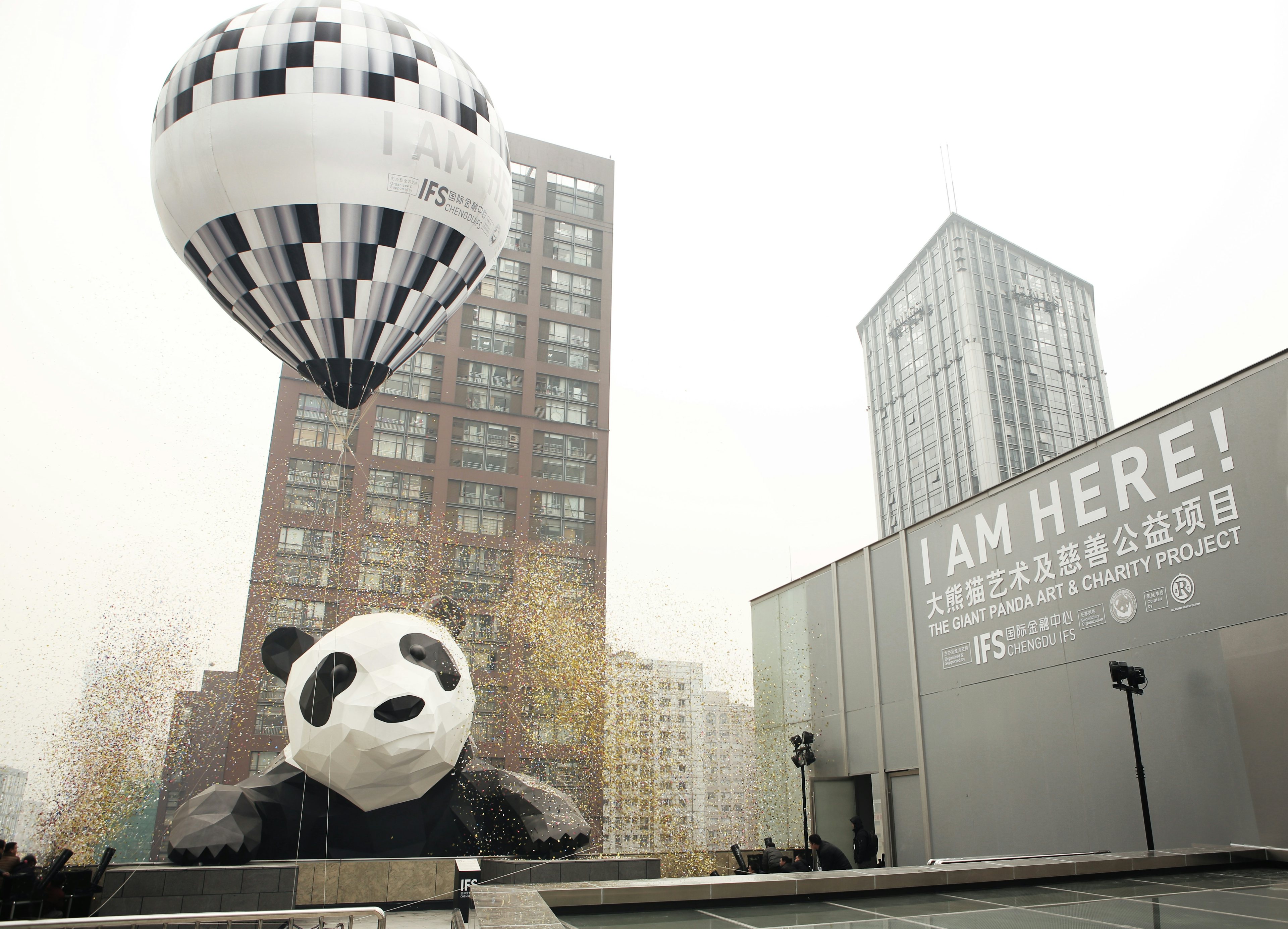
Catering to “art-lennials”#
Like many successful shopping malls around the globe, Chengdu IFS is witnessing contemporary art become a steady influence on millennials and Generation Z, and it's actively following this trend as a way to embrace these art-lennials. Since its inception, art has been a vital part of the mall's DNA, with unique art installations punctuating the giant space to make it feel more like a tourist attraction. For example, Chengdu IFS’s gigantic and iconic panda sculpture, which hangs over its main entrance, is a commission created by artist Lawrence Argent. The sculpture has become the most Instagram-able place of the mall today, attracting hundreds and thousands of visitors to come and take pictures each day.
Occasionally, Chengdu IFS is used as the venue to host large-scale city events, such as the Parcours Art Festival in September, which was a joint initiative between the Chengdu government and the high-end Parisian neighborhood of Saint-Germain-des-Prés. With the mall's help, luxury brands Fendi, Chopard, and Loewe co-presented themed art exhibitions during the festival to reach Chinese customers via creative storytelling. Moynat, Longchamp, and Comme Moi even released exclusive products to celebrate it. And this April, Chengdu IFS is once again going celebrate Tibetan culture and art as a way to bridge the gap of understanding between Tibet and the rest of China.
So, is Chengdu IFS’s success replicable? Not all cities have access to Chengdu's desirable luxury customers (who care more about the shopping experience than price tags) but the way Chengdu IFS operates may offer some good lessons to struggling mall retailers. It has all the key ingredients: good location, high-quality client base, a solid retail network of strong brands, and most importantly, top-notch environment and services. With all of this at its disposal, it would be hard not to thrive.
